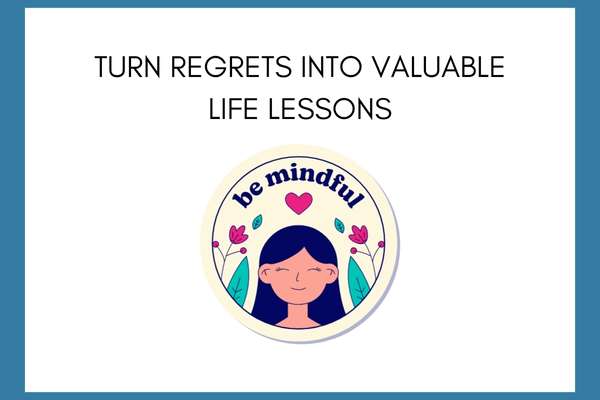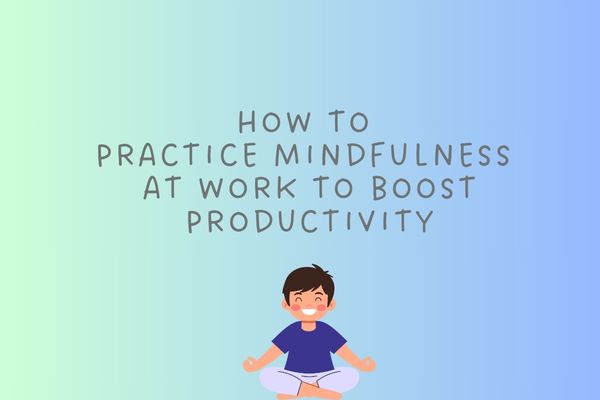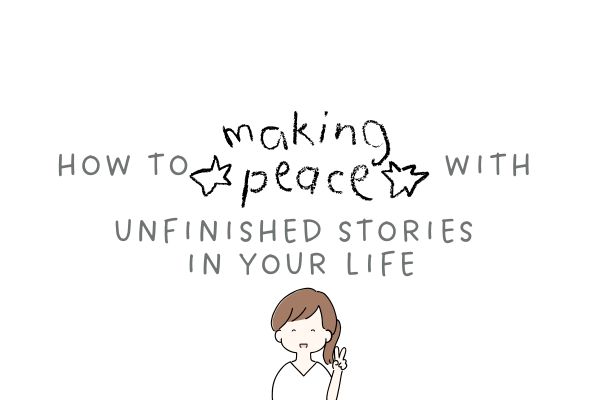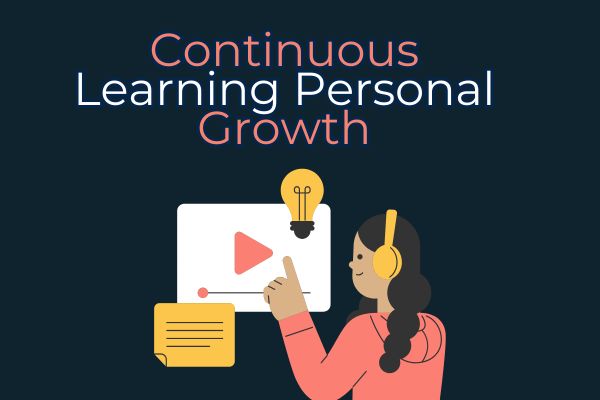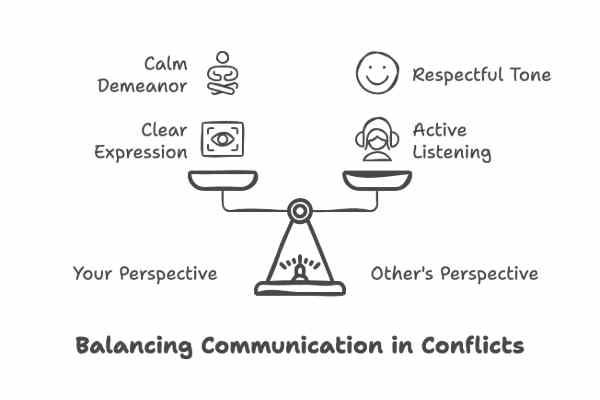Regret is an emotion that almost everyone experiences at some point in their lives. It stems from a feeling of dissatisfaction or remorse about past actions, decisions, or missed opportunities. Whether it’s something as simple as a forgotten promise or as complex as a life-altering mistake, regrets can weigh heavily on our minds and hearts. However, while regret can initially seem like a negative emotion, it doesn’t have to be something that holds us back. In fact, it can serve as a powerful catalyst for growth and transformation if we learn how to turn it into a valuable life lesson.
Understanding Regret: The Emotional Landscape
What Is Regret?
Regret is a complex emotional experience that arises when we believe we could have made a better choice in the past. It often involves feelings of guilt, self-blame, and a desire to undo what has been done. While regret is generally seen as negative, it serves an important function—it can signal that our values have been violated or that we have strayed from our intended path.
Regret can manifest in several ways, such as:
- Action Regret: This happens when we regret something we did. Perhaps we acted impulsively or made a decision we now wish we could take back.
- Inaction Regret: This type of regret arises when we regret not doing something. It may be a missed opportunity or a decision we avoided due to fear or procrastination.
- Regret of Choices: This involves regrets about major life decisions—career choices, relationships, or personal goals.
Understanding the nature of regret is the first step in transforming it into something valuable. Instead of simply seeing regret as a negative feeling, we can view it as a reflection of what we truly value and what we want to improve in our lives.
The Science of Regret
Why Do We Feel Regret?
Psychologically speaking, regret is linked to our ability to reflect on our past decisions. It arises when we evaluate our actions or inactions in hindsight and realize that an alternative course might have led to a better outcome. The human brain is wired to constantly assess choices, comparing them against other possibilities. This process, known as “counterfactual thinking,” often leads to feelings of regret.
Interestingly, research has shown that people tend to regret actions less than inactions. In other words, we often regret not taking action more than we regret the actions we did take, even if those actions resulted in failure. This is because we can usually learn from our actions, whereas missed opportunities leave us with lingering doubts and “what if” scenarios.
The Role of Regret in Decision Making
While regret can feel painful, it is an important emotional response that influences our future decision-making. By reflecting on our regrets, we can gain insights into what went wrong and what we could have done differently. This self-reflection process helps improve our decision-making skills, teaching us how to make better choices in the future. Regret motivates us to do better, adjust our behavior, and avoid repeating the same mistakes.
The Power of Reflection: Turning Regrets into Learning Opportunities
Embrace Self-Reflection
One of the most powerful ways to turn regret into a life lesson is through self-reflection. Rather than allowing regret to overwhelm you with negative emotions, use it as an opportunity to examine your actions, motivations, and the factors that led to the decision. Self-reflection allows you to gain a deeper understanding of your behavior and thought processes.
Ask yourself questions like:
- What was I feeling at the time I made that decision?
- What did I learn from the experience?
- What could I have done differently?
- How has this regret shaped my values?
By honestly reflecting on your regrets, you can identify patterns in your decision-making and recognize areas for improvement. This practice not only helps you learn from the past but also prevents you from repeating the same mistakes.
Reframe Your Perspective
Reframing is a cognitive technique that involves changing the way we perceive a situation. Instead of viewing regret as a failure, try to see it as an opportunity for growth. For example, if you regret not pursuing a particular career path, reframe that experience by focusing on the lessons you’ve learned from your current career. Perhaps you’ve gained new skills, developed resilience, or discovered a passion that you wouldn’t have otherwise explored.
Reframing allows you to look at regret through a lens of personal growth, turning it from a negative experience into a valuable lesson.
Accepting Regret and Letting Go of Guilt
The Importance of Self-Compassion
A key step in turning regret into a valuable life lesson is learning to accept it without being overly self-critical. Self-compassion involves treating yourself with kindness and understanding, especially during times of disappointment or failure. Instead of beating yourself up for past mistakes, acknowledge that you are human and that everyone makes errors.
Forgive yourself for the decisions that led to regret. Understand that mistakes are part of life, and they offer valuable lessons that contribute to personal growth. By practicing self-compassion, you can release the guilt associated with regret and move forward with a clearer, more positive mindset.
Letting Go of Perfectionism
Regret often arises from a desire to be perfect. We may hold ourselves to unrealistic standards and feel guilty when we fall short. Letting go of perfectionism allows you to embrace the idea that mistakes are not only inevitable but also necessary for growth. By shifting your mindset from perfection to progress, you can use your regrets as stepping stones rather than obstacles.
Using Regret as Motivation for Change
Setting New Goals
Once you’ve reflected on your regrets and accepted them as part of your growth journey, use them as motivation to set new goals. Regret often stems from missed opportunities or unfulfilled desires. By setting clear, achievable goals for the future, you can channel your regrets into positive action.
For example, if you regret not pursuing a particular dream, take concrete steps toward it now. Whether it’s enrolling in a class, reaching out to someone in the industry, or dedicating time to your passion, taking action toward your goals transforms regret into progress.
Building Resilience
Regret is a natural part of life, and learning how to cope with it is a key aspect of building emotional resilience. By embracing regret and using it as a learning tool, you develop the ability to bounce back from setbacks and adapt to challenges. Resilience doesn’t mean avoiding regret—it means using it as a stepping stone to strengthen your resolve and continue forward with purpose.
Also check: The Importance of Patience in a Fast-Paced World
Learning from Regret in Relationships
Understanding Relationship Regrets
In the context of relationships, regrets often arise from missed opportunities for connection, poor communication, or unresolved conflicts. These regrets can be particularly painful because they involve the people we care about the most. However, relationship regrets offer valuable insights into what we value in our connections with others.
Reflecting on relationship regrets can help us understand patterns in our behavior, such as tendencies to avoid confrontation or neglect our emotional needs. By acknowledging these regrets, we can learn to communicate more effectively, set healthier boundaries, and nurture relationships in a more mindful way.
Apologizing and Making Amends
One of the most powerful ways to turn relationship regrets into life lessons is through apology and reconciliation. If you regret a past action that hurt someone, taking responsibility and offering a sincere apology can help heal the relationship. Apologizing not only shows maturity and self-awareness but also opens the door for growth and healing.
Embracing Change and Moving Forward
Building a Growth Mindset
A growth mindset is the belief that we can develop and improve through effort and learning. People with a growth mindset see challenges and setbacks as opportunities to learn and grow. Rather than seeing regret as a permanent state, they view it as part of the ongoing process of becoming better versions of themselves.
By embracing a growth mindset, you can use regret as a powerful tool for personal transformation. Instead of dwelling on past mistakes, focus on how you can evolve and use your experiences to move forward.
Taking Action Toward Positive Change
Ultimately, the key to turning regret into a valuable life lesson is action. After reflecting on your regrets, accepting them, and learning from them, take concrete steps toward change. Whether it’s making a different decision next time, improving your behavior, or pursuing new opportunities, action transforms regret into growth.
Conclusion
Regret is a natural part of the human experience, but it doesn’t have to be a source of negativity. By embracing regret as a teacher and using it to reflect, learn, and grow, we can turn our past mistakes into valuable life lessons. Regret can provide us with the wisdom we need to make better choices in the future, build stronger relationships, and live more authentically.
Instead of letting regret hold you back, use it as a catalyst for positive change. By practicing self-compassion, embracing a growth mindset, and taking action, you can turn even your deepest regrets into opportunities for growth and personal transformation.
